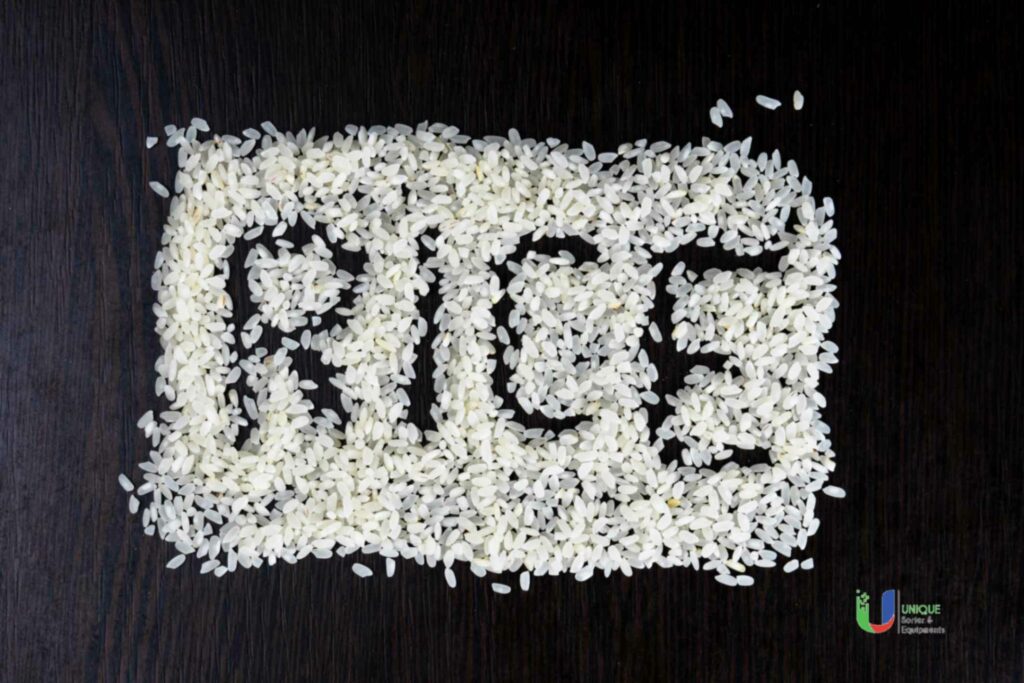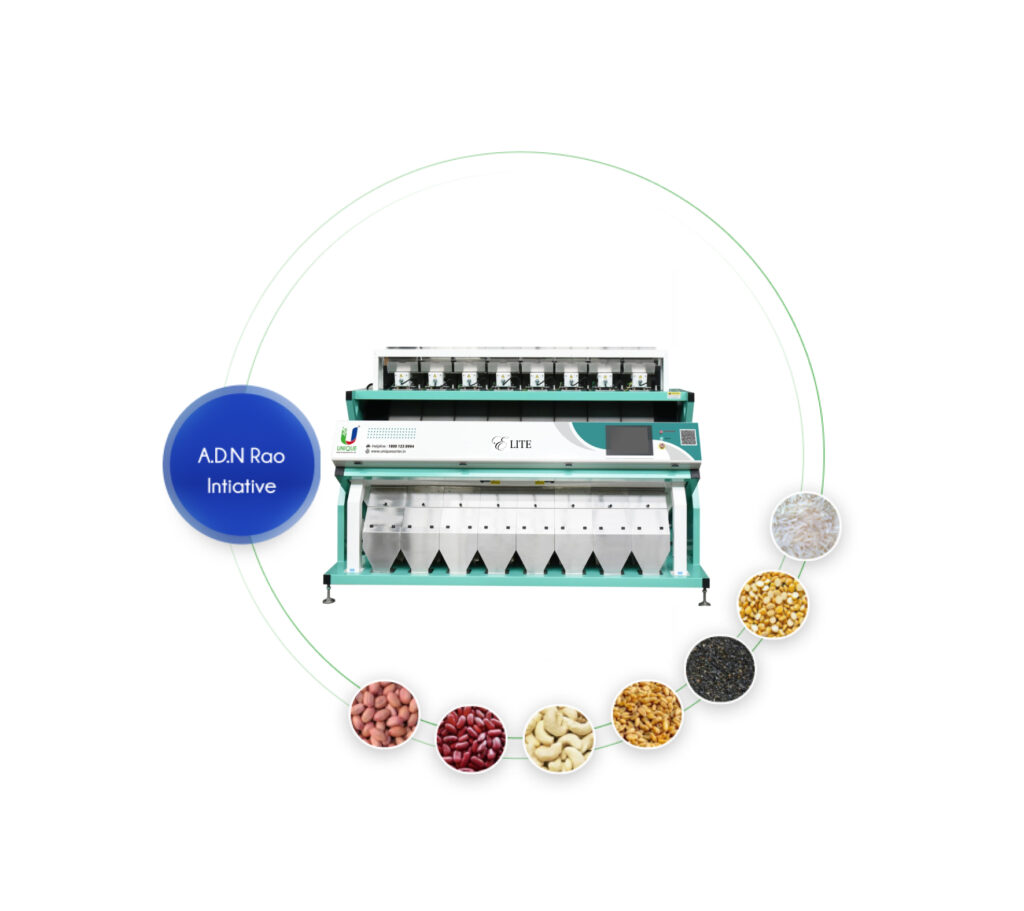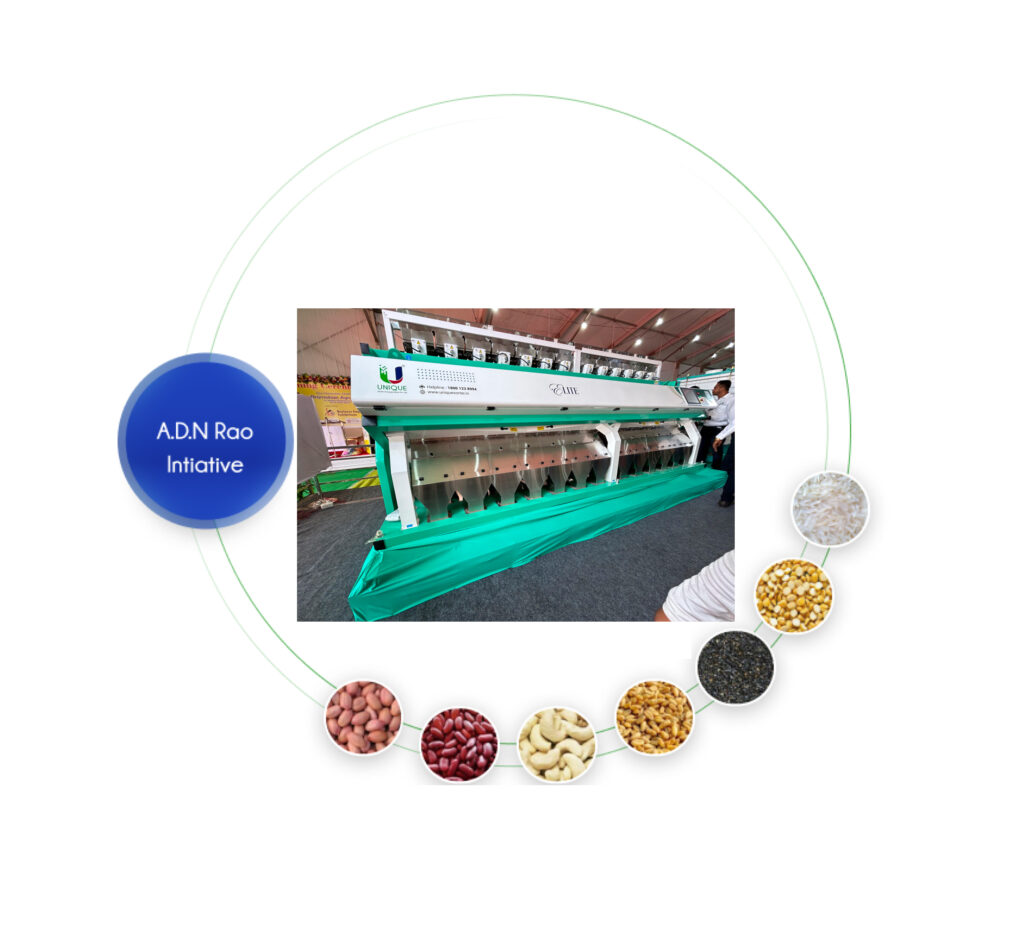Equipment and Machinery for a Successful Rice Mill Business

Introduction
Within the intricate tapestry of agriculture, the rice mill business occupies a pivotal position, acting as the transformative nexus that turns raw paddy into the ubiquitous staple of our daily diets—rice.
For enterprising individuals embarking on this journey, the selection of equipment and machinery is a momentous decision that can shape the very essence of productivity, quality, and overall operational efficiency.
This article serves as an exhaustive roadmap, delving deep into the world of essential equipment necessary to foster a flourishing rice mill business. It places a strong emphasis on the pivotal role of modern technology in streamlining operations, ensuring that your venture remains at the forefront of innovation and excellence.
Paddy Cleaning Equipment
De-stoner Machines:
The foundation of a successful rice mill business lies in the meticulous cleaning of the raw paddy, and at the heart of this critical step are de-stoner machines. These indispensable pieces of equipment efficiently carry out the task of purging stones and heavy impurities from the paddy.
Beyond safeguarding subsequent machinery from potential damage, de-stoners play a pivotal role in enhancing the quality of the final rice product. By meticulously removing undesirable elements, de-stoners pave the way for a smoother and more efficient rice milling process, setting the stage for premium quality rice.
Paddy Husker:
In the initial stages of rice milling, a high-quality paddy husker assumes a pivotal role in the transformation process. This specialized equipment is instrumental in removing the tough husks from the paddy grains, an essential preparatory step for the subsequent milling phases. Ensuring that the paddy is free from husks not only streamlines the milling workflow but also contributes to the overall efficiency of the rice mill. A proficient paddy husker not only accelerates the process but also lays the groundwork for producing polished rice of superior quality, marking a significant milestone in the journey of a successful rice mill business.
Rice Milling Machines
Whitening Machines:
In the pursuit of a thriving rice mill business, the significance of investing in advanced rice milling machines cannot be overstated. Among these, whitening machines play a pivotal role in optimizing both yield and quality.
Equipped with innovative features and cutting-edge technology, whitening machines are designed to meticulously remove any remaining bran layers from the rice grains. This not only enhances the visual appeal of the rice but also significantly contributes to the overall quality of the final product.
With advanced whitening machines, operators gain precise control over the milling process, ensuring the production of uniform and high-quality rice grains that are poised to meet and exceed market expectations.
Polishing Machines:
In the journey to create a rice product that not only meets the highest quality standards but also possesses market appeal, polishing machines take center stage. These specialized machines contribute to the glossy finish of the rice, elevating its visual allure and eliminating any lingering bran particles.
The polishing step adds a finishing touch that enhances the overall appearance and marketability of the rice, making it more attractive to discerning consumers. As an essential component of the rice milling process, polishing machines ensure that the final product is not just refined in quality but also possesses the eye-catching attributes that set it apart in the competitive landscape.
Grading Machines:
For a successful rice milling business, grading machines serve as indispensable tools in ensuring that the final product meets stringent market standards. These machines categorize rice based on various criteria, including size, shape, and quality.
By carefully segregating rice grains into distinct categories, grading machines enable mill operators to offer products that align precisely with market demands. This, in turn, allows for better pricing strategies and heightened customer satisfaction.
In a highly competitive rice milling industry, efficient grading becomes a key factor in establishing a distinctive edge, offering customers a range of options, and ultimately driving the success of the business.
Drying Equipment
Drying Equipment constitutes a pivotal aspect of ensuring the success of a rice mill business. Proper drying is indispensable not only for preventing mold growth but also for upholding the overall quality and shelf life of the rice. Two main types of drying equipment, batch dryers and continuous flow dryers, cater to different scales of rice milling operations, offering flexibility and efficiency tailored to specific needs.
Batch Dryers:
Batch dryers serve as a dependable solution, particularly suited for smaller-scale rice milling operations. These machines employ heated air to remove moisture from the rice in manageable batches. What sets batch dryers apart is their ability to provide operators with precise control over drying time and temperature. This flexibility ensures that the rice is dried thoroughly while preserving its quality.
For entrepreneurs starting with limited resources or aiming for a more flexible drying process, batch dryers offer a reliable choice, allowing for careful management of drying parameters.
Continuous Flow Dryers:
In contrast, larger rice mills benefit immensely from the efficiency and automation offered by continuous flow dryers. These state-of-the-art machines provide an automated and uninterrupted drying process, which is ideal for handling higher volumes of rice.
Continuous flow dryers are recognized for their energy efficiency and the ability to maintain precise control over temperature and airflow. This ensures uniform drying and, equally importantly, preserves the nutritional integrity of the rice.
With the ability to streamline the drying process and accommodate larger production volumes, continuous flow dryers represent a valuable asset for rice mill businesses seeking efficiency and scale.
Packaging Machinery
Packaging Machinery forms the final but no less critical link in the rice milling process, ensuring that the high-quality product reaches consumers in pristine condition. After the rice has been expertly milled and meticulously dried, it’s imperative to package it with precision and care.
Automatic Bagging Machines:
Automatic bagging machines are indispensable in this regard. These efficient machines automate the packaging process by expertly weighing and filling bags with the desired quantity of rice. This not only streamlines the packaging process but also significantly reduces the likelihood of human errors, ensuring consistent and accurate packaging.
Whether you’re packaging rice in small or large quantities, these machines enhance efficiency and reliability, contributing to a seamless transition from production to distribution.
Sealing Machines:
Sealing machines, another essential component of packaging machinery, are responsible for preserving the freshness and longevity of the rice. These machines excel at effectively sealing bags, creating an airtight barrier that prevents the entry of moisture and contaminants. This sealing step is critical for maintaining the quality of the rice during transportation and storage.
By safeguarding the rice from external elements, sealing machines ensure that the rice reaches consumers in the same premium condition in which it left the rice mill. The integrity of the packaging is crucial in upholding the quality and consumer satisfaction associated with your rice product.
Storage Silos
Investing in proper storage facilities is an imperative step in ensuring the continued quality of rice post-milling, and storage silos stand as the linchpin of this process. These specialized containers provide a controlled and protective environment that shields the rice from various environmental factors and potential pest infestations.
Airtight Design:
One of the foremost advantages of storage silos lies in their airtight design. This critical feature serves as a formidable barrier against the entry of moisture and pests, thereby preserving the pristine quality of the stored rice. The prevention of moisture infiltration is particularly crucial, as it safeguards against the development of mold and the compromising of the rice’s quality.
By maintaining an airtight seal, storage silos ensure that the rice remains in optimal condition, from the moment it is stored until it reaches the discerning end consumer.
Temperature Control:
Temperature control is an additional boon offered by certain silo designs. These silos are equipped with features that allow for precise temperature regulation, a paramount consideration for long-term rice storage.
Maintaining a controlled temperature environment not only prevents the formation of mold but also plays a pivotal role in preserving the nutritional integrity of the rice. This ensures that the rice retains its quality over extended periods, catering to the demands of markets that prioritize both quality and longevity.
In essence, storage silos represent an essential investment for rice mill businesses, ensuring that the rice they produce maintains its exceptional quality throughout its journey to the consumer’s table.
Bottom Line
In summary, the success of a rice mill business is intricately linked to the strategic selection of equipment and machinery. From the crucial initial cleaning stages to the final stages of packaging and storage, each step demands a thoughtful choice of technology to optimize both efficiency and product quality.
In an era of rapid technological advancement, staying current with the latest innovations in rice milling equipment is not just an option but a necessity for sustainable growth and enduring success in the ever-evolving rice industry.
By making informed decisions regarding equipment and machinery, entrepreneurs can elevate the efficiency of their rice milling operations, ultimately contributing to the overall advancement and sustainability of the rice milling industry.
As the global demand for high-quality rice continues to surge, investing in the right technology emerges as a strategic move for establishing and nurturing a thriving rice mill business.
The integration of advanced machinery not only streamlines operations but also positions the rice mill as a formidable player in the market, ready and equipped to meet the evolving and discerning needs of consumers. In essence, the future of the rice milling industry lies in the hands of those who embrace technological innovation and make the right choices in equipment and machinery to deliver excellence in every grain of rice.
Get A Quote
Related Post
Discover the art of precision with our color sorter: revolutionizing sorting processes with unparalleled accuracy and efficiency.
Elite Corn Color Sorter Machine
Elite Corn Color Sorter Machine, powered by the revolutionary Jarvis system and Smart vision technology.

Elite Coffee Bean Sorter Machine
Elite Coffee Bean Sorter Machine, a pinnacle of precision and efficiency in the world of coffee sorting technology.

Elite Spices Color Sorter Machine
Revolutionize your spice sorting processes with unmatched efficiency and accuracy of Elite spice sorter.


